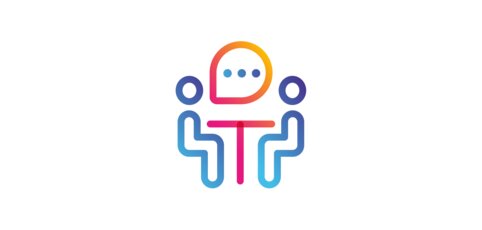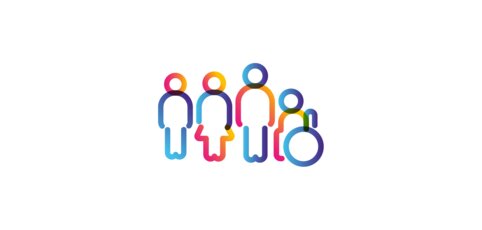What is autism?
Autism influences how people experience and interact with the world. It is a lifelong neurodivergence and disability. Autistic people are different from each other, but for a diagnosis they must share differences from non-autistic people in how they think, feel and communicate.
Being autistic means you may feel things and react to them differently to non-autistic people. You may find socialising confusing or tiring, and you may become overwhelmed in loud or busy places. You may have intense interests, prefer order and routine, and use repeated movements or actions to calm yourself or express joy. You might mask your discomfort to fit in, which can lead to mental illness.
On this page:
How many autistic people are there?
More than one in 100 people are autistic and there are at least 700,000 autistic adults and children in the UK. These numbers are not the same as the number of people with an autism diagnosis. They are based on research about the true figure, which is likely to be higher. More research is needed to know for sure.
People of all ages, genders and ethnicities can be autistic. But people from marginalised groups can face more barriers to getting a diagnosis. This can be because of a lack of awareness about the true diversity of autistic people.
The spectrum
Autism is understood as a spectrum. In the past, people thought the spectrum was a straight line between ‘more’ and ‘less’ autistic. This isn’t right. Today we understand the spectrum to mean each autistic person has a unique combination of characteristics. Autistic people can be very different to each other, with different sets of strengths and challenges.
The presence or visibility of characteristics can vary a lot between autistic people. This can also change over time, in different situations or if the person is masking. It is important not to make assumptions about an individual autistic person’s skills, abilities or support needs.
Autism is not a learning disability or a mental health condition. But around a third of autistic people also have a learning disability. And autistic people are more likely to experience mental health problems.

"The greatest discomfort for autistic people can be the social one. For me, I was confused by the way people behaved."
Understanding autism
Our understanding of autism is evolving all the time. Most autistic people see being autistic as central to who they are. They may need support to succeed in a world designed for the needs of non-autistic people. But it is the barriers they face in society that are an issue, not being autistic. This is known as the ‘social model’ of disability.
The medical texts that define the criteria for an autism diagnosis describe autism differently to how many autistic people and others describe it. These texts use words like ‘disorder’ that many people believe are inaccurate and offensive. Everyone’s brain is different. So a ‘neurodiversity’ approach views autism as a natural variation in people.
The ‘core characteristics’ of autism needed for a diagnosis
There are many signs that a child or adult may be autistic. To get an autism diagnosis, a specialist team must agree that a person shows the ‘core characteristics’ of autism. These are lifelong differences in communication, behaviours and interests compared to non-autistic people.
Communication
Autistic people may have different communication styles, skills and preferences to non-autistic people. They may use and understand words, tone of voice and body language, such as gesture and facial expressions, differently.
Some autistic people have intermittent, unreliable, limited or no speech. They may communicate in other ways, for example: in writing or sign language, through gesture or sounds, or by using Augmentative and Alternative Communication (AAC), such as picture cards and/or high-tech devices.
Behaviours and interests
A lot of medical and professional literature refers to these differences as ‘restricted and repetitive behaviours and interests’ (RRBIs). They must be seen as affecting ‘everyday functioning’ for a diagnosis to be made.
But many autistic people see these characteristics as positive and helpful. Some prefer to describe them as ‘stimming’ (stimulatory) or ‘self-regulatory’ behaviours – ways to keep calm and happy.
These include having or showing:
- focused and dedicated interests (such as a very strong passion for a hobby, an entertainment figure or series, a toy, or an academic interest)
- repeated movements and behaviour (such as hand flapping, hair twirling, spinning around, or listening to something on repeat)
- preference for order, predictability or routine (such as wanting to know what is going to happen in detail, for rules to be the same for everyone, having the same routine or meals each day, or needing a favourite toy to feel calm).
Sensory processing
Autistic people can be much more or less sensitive than non-autistic people to the five main senses (sight, sound, touch, taste and smell) and senses for balance, movement, spatial awareness and awareness of internal states (such as hunger and temperature).
A person may be very sensitive to one kind of sensory input, but not at all sensitive to another. Their reactions can also change depending on the situation and environment.
Sensory processing differences are not a standalone core characteristic. During diagnosis, these are considered part of ‘RRBIs’ (see Behaviours and interests above). This is because of the reactions they may cause (avoiding or seeking out sensory input or showing distressed behaviours).
Why are some people autistic?
Evidence suggests that autism is genetic. Scientists have been attempting to identify which genes mean someone is autistic. It is likely that there are multiple genes rather than a single gene.
There is no link between autism and vaccines. A lot of research has focused on this over many years and the results show that vaccines do not cause autism.
Autistic people are autistic for their whole life. There is no evidence that autism can be acquired. For example, autism is not caused by parenting style. And an autistic person cannot become non-autistic. Read more about this on our page Warning: So-called cures and dodgy interventions.
Is autism a disability?
Autistic people are disabled. Disability is a 'protected characteristic' in UK law. This means autistic people have legal protections against discrimination. It also means they are entitled to the support they need in education, at work or to access services.
Some autistic people prefer not to say that autism is a disability. Instead, they say autistic people are disabled by the barriers they face in society. This is the ‘social model’ of disability. Many describe themselves as neurodivergent – as well as, or instead of, disabled.
Like anyone, autistic people can also be disabled for other reasons. For example, a learning or physical disability, or mental health problem.
More about autism

Diagnosis
Our guides for autistic adults, parents and carers, and professionals, on the diagnostic process, getting support after a diagnosis, and more.

Autistic women and girls
More women and girls than ever before are discovering that they are autistic. Many had been missed or misdiagnosed due to outdated stereotypes about autism. But that is slowly changing.

Masking
A strategy used by some autistic people to appear non-autistic. This can have a devastating impact on mental health, sense of self and access to an autism diagnosis.

Stories from the Spectrum
Autistic people and their friends and families share their experiences. There are funny stories, thought-provoking stories, moving and challenging stories.
Read the storiesRelated training

Understanding Autism
If you are looking to provide your staff with a more in-depth introduction to autism and autistic experience, this course will develop your knowledge and understanding through exploring key areas of difference.

E-learning
Our e-learning modules provide perspectives from autistic people about how autism is defined and experienced. It will enable learners to recognise the strengths and challenges experienced by many autistic people and how to respond to create enabling environments.

Understanding and supporting autistic people
This introductory course builds your knowledge of autism and how to support autistic children and adults.
Ways to get involved

It's How You Show Up
Showing up for the autistic people in your life can be easier than you might think. We have launched a public awareness campaign to educate people on simple changes they can make.
See more

